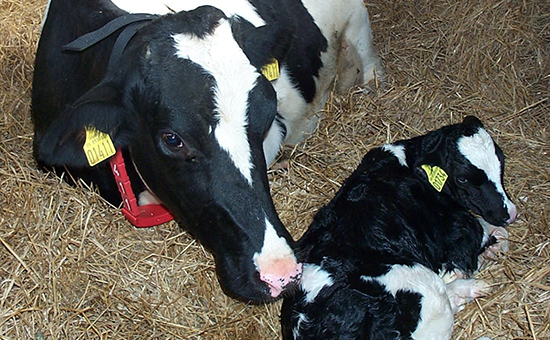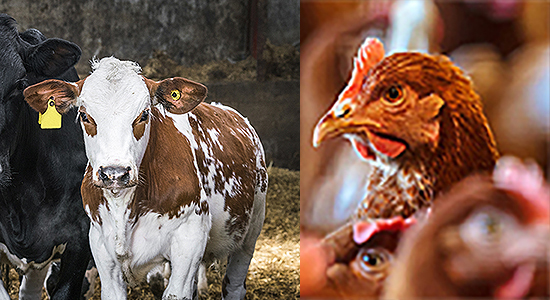Research
This group covers research within three main areas, and even has activities which directly connect these areas to each other.
Animal Genetics and Breeding:
We generate information that contributes to novel biological insight into mammalian genomes and function. We use this insight to improve animal and human health, develop diagnostic tests and to support sustainable animal breeding and production. Read more about this groups research.
Bioethics:
The aim of our bioethical research is to express, in words, varying ethical perspectives relative to the evaluation of animal welfare, different uses of animals, and evaluation and management of risks. The normative analyses are combined with studies from the social sciences regarding attitudes of different interest groups.
- Ethical perspectives on various ways in which people use animals
- Different definitions of animal welfare and their ethical foundation
- Mapping of ethical assumptions, which form the foundation of evaluations of animal welfare
- Understanding different types of relations between animals and people
- Economic and other motivations to improve animal welfare
- Risk perception
Ethology
Ethology is the study of animal behavior. The applied ethology is concerned with the behavior of family- and production animals, what resources the animals require in order to conduct their normal behavior, and what the consequences are when the animals cannot conduct this behavior, such as stress and frustration. Thus the central elements are:
- Normal vs. abnormal animal behavior
- Experimental studies of basic animal needs
- Animal emotions and how they express them
- Evaluation of animal behavior based on induced as well as spontaneous behavioral parameters
- Behavioral- and welfare consequences of the physical and social environment of the animals
- Pain evaluation
- Temperament
- Antrozoology, i.e. human-animal interactions
Veterinary epidemiology
Epidemiology involves characterization and quantification of diseases in a given population. It is also concerned with the spread of infectious agents such as viruses and bacteria, as well as definitions and quantifications of health. This is all covered by the groups specific activities, which are:
- Basic epidemiology
- Decision support
- Data management and validation
- Evaluation and interpretation of diagnostic tests
- Observational studies in populations
- Modeling infectious diseases
- Sampling- and testing strategies
- Disease monitoring
Interdisciplinary and applied areas
All of the above are integrated into activities, where the methods and competences within the group are applied in relation to
- Animal welfare and evaluation thereof
- Food safety
- Production animal health economics
- Production animal welfare economics
- Veterinary community health and “one health”
- Veterinary forensics
which are, for example, applied in activities concerning monitoring of infectious diseases and zoonosis of production animals, including among others Coxiella burnetii, paratuberculosis, B-Streptococcus, and Mycoplasma bovis.
- Reduction of antibiotics usage in pigs
- Developing welfare indexes for production animals
- Evaluation of risk factors for welfare problems of pigs and poultry
- Automatic monitoring of behavior and welfare of pigs and poultry
Project: Robuste kalve

The aim is to promote the breeding of robust calves by producing knowledge and tools for optimal health management of calves, with a focus on the first months of life, so that calf mortality and antibiotics-
consumption can be lowered.
Read more about "Robuste kalve" (in Danish)
Project: ACROBAT

Reduced use of AntimiCROBials in cAttle and poulTry. Read more about the ACROBAT project
